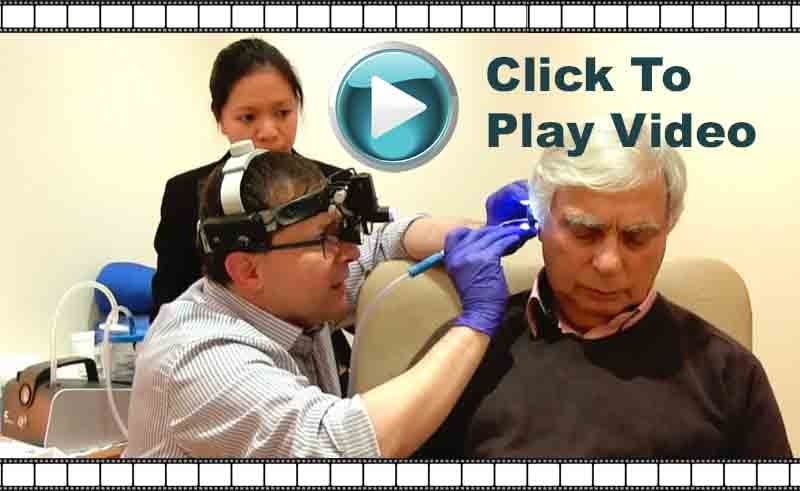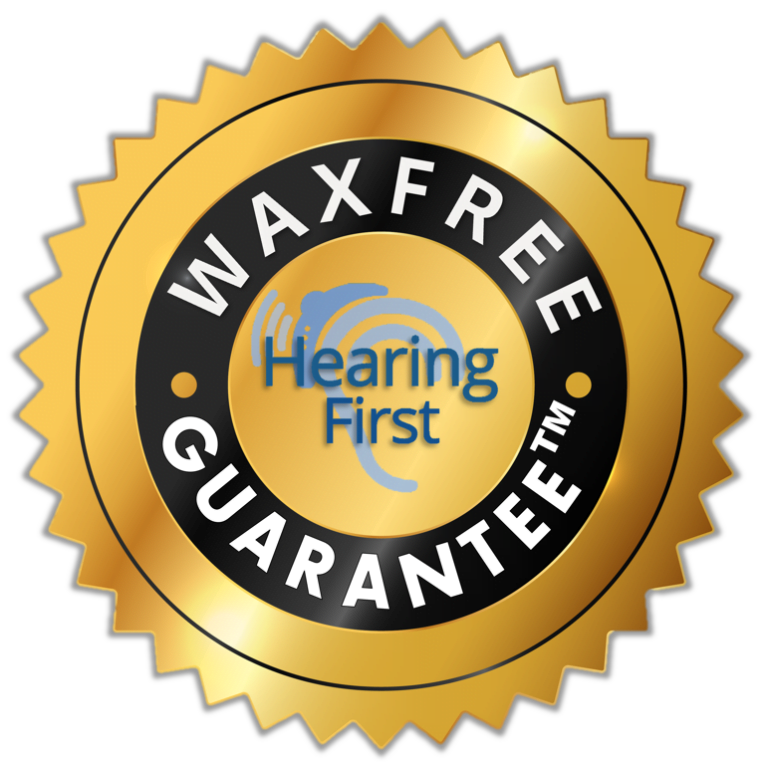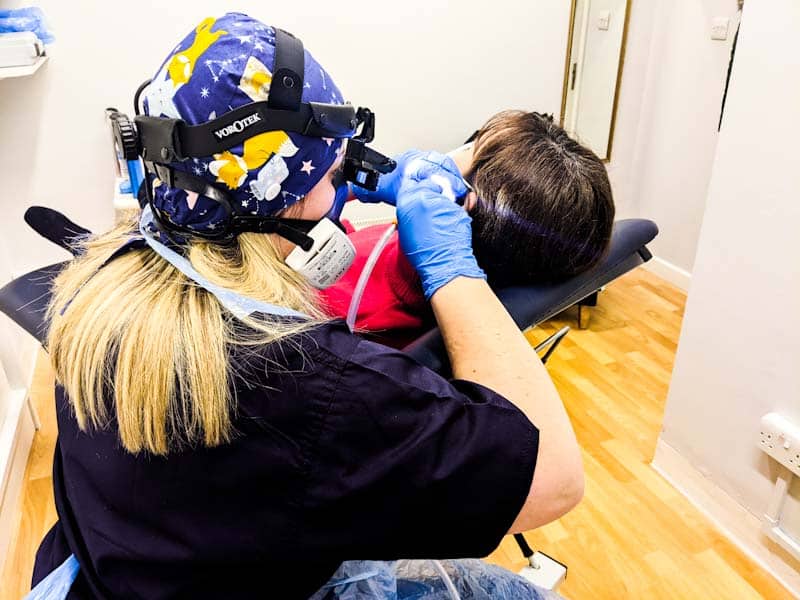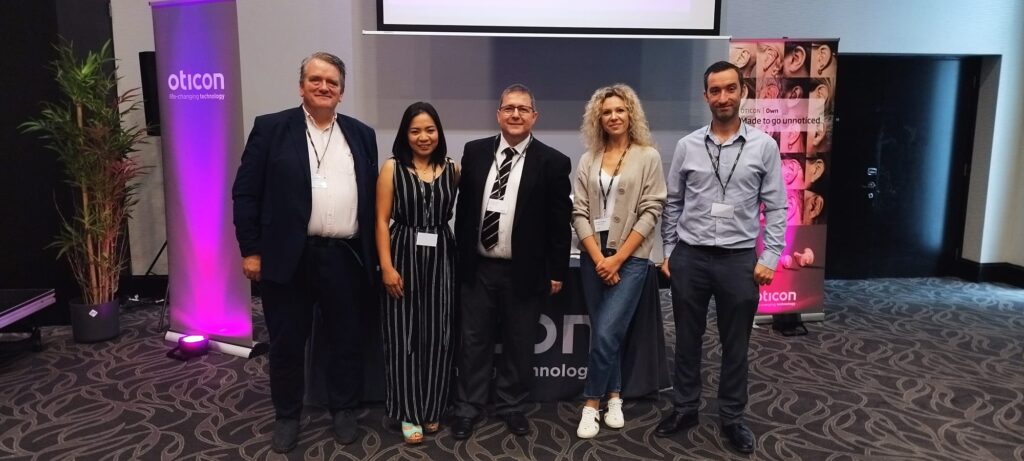Book A Microsuction Ear Wax Removal Appointment In Rochester (For Adults 18 Years Old and Above)
For children under 18, please click here

Guaranteed Results With Our Waxfree Guarantee™!
We’re the only national independent ear wax removal specialists that offer our unique Waxfree Guarantee™. When you follow our Waxbusting Protocol™, we guarantee to get your ear wax out on the first visit, or your next visit is free. You can find out more about our Waxfree Guarantee™ here: The Hearing First Waxfree Guarantee™ (opens in a popup).
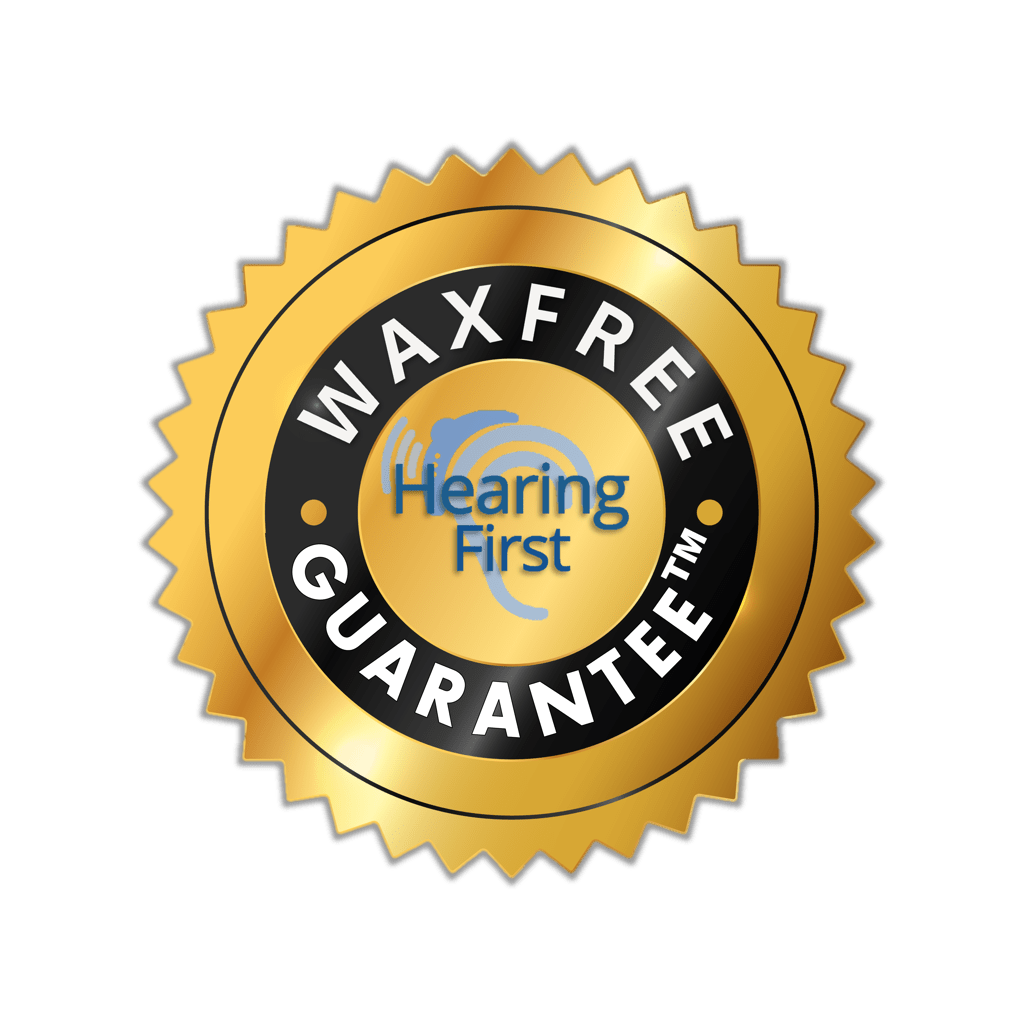
How To Book Microsuction Ear Wax Removal In Rochester Online
- Around 2 out of every 3 people coming to our clinics need both ears treated, so both ears are selected by default. For just one ear, click “Left” or “Right” and the appointment length and price will be reduced.
- Click on “Find Appointments” in the box below.
- After the list of appointments and prices appears, you can see appointments at other nearby clinics by clicking on a higher distance at the top of the table.
- The prices shown already have the £10 online booking discount applied.
- If you want to learn more about the clinic, click on Clinic Info beneath location at the left-hand side of the table.
- When you’ve chosen the appointment and clinic location you want, click on Book Now to go to checkout. After you have made your payment, you will receive an email and text message confirming your booking.
To Book Ear Wax Removal In Rochester Click “Find Appointments”
A few things to remember before you book!
- We strongly recommend that you soften your ear wax with Earol spray, 4 times a day for at least 5 days prior to your appointment OR follow our Waxbusting Protocol™ and take advantage of The Hearing First Waxfree Guarantee™
- Some of our audiologists are vulnerable to Covid and may ask you to wear a mask. We kindly ask you to cooperate if asked to wear one. If you are clinically vulnerable, please call our booking team on 0800 1 337 987 and they will book a specific appointment for you.
- Because we operate via a booking system, we employ a 36-hour policy for all appointments. That means that if you want to cancel or reschedule your booking, it must be done at least 36 hours before your schedule.
- If you book for both ears and only one has ear wax, we cannot refund the other ear as we cannot give that time to another patient. The same principle applies if we find no earwax during the appointment.
You can also call us on 0800-1-337-987 for our “Done for You” booking service!
For busy people who don’t have time to make their own online booking and fill in the consent form, we offer our “done for you” booking service. Just call us on 0800-1-337-987 and our booking staff will do all the work for you. Remember to have your credit or debit card to hand.

Expert Ear Wax Removal In Rochester
Our Rochester clinic can be found at:
Rochester: Microsuction Earwax Removal Kent ME1
Address:
Karsons Pharmcy, 69 – 71 City Way,Rochester,
Kent,
ME1 2BA
Map Of Where To Find Our Rochester Ear Wax Clinic
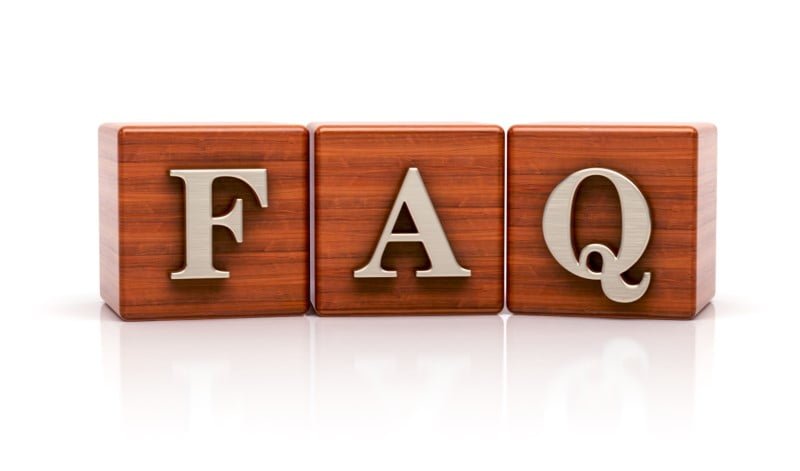
Frequently Asked Questions
-
Why should I book an ear wax removal appointment with Hearing First?

1. Hearing First are the only ear wax removal provider to offer our Waxfree Guarantee™.
2. At Hearing first, we directly employ all of our clinicians – we are not a referral service.
3. All Hearing First clinicians are Audiologists who specialise in hearing – we do not employ pharmacy assistants, podiatrists or beauticians.
4. Our clinicians are highly trained and undergo regular professional development training so that they are up to date in the latest developments in Audiology.
5. At Hearing First all of our clinicians use the Vorotek O-Scope to carry out the wax removal procedure. Unlike loupes, a video-endoscope or the Tympa system, the Vorotek O-Scope maintains depth perception right up to the ear drum, and is therefore much safer than other visualisation methods.
6. All Hearing First clinicians are trained to use the microsuction as well as manual instrument methods, which are the safest and most effective methods of ear wax removal. -
What are the four methods of ear wax removal?
The four methods of ear wax removal are:
1. Irrigation (aka syringing)
2. Endoscopic ear wax removal
3. Microsuction
4. Manual instruments -
Do you use all four methods of ear wax removal?
There are four types of ear wax removal, but while they are all effective in their own way, they are NOT equal in terms of effectiveness and safety. No method of ear wax removal is 100% safe, though some are safer than others, and the safety greatly depends on the fundamental training of the practitioner – does the practitioner have extensive training in the ear, or are they a beautician, podiatrist, pharmacy assistant or other non-specialist technician?
Irrigation: We have NEVER used irrigation, as it has historically had a high incidence of ear drum perforation. We refer to it as “spray and pray”, because during the procedure the ear drum and ear canal cannot be seen as the ear canal is full of water. The relatively high pressure water jet is supposed to be directed at the ear canal wall, but can inadvertently strike the ear drum. This is especially dangerous where there is an ear infection (which can sometimes be silent – i.e. the patient does not experience pain), as the ear drum can be weakened by the infection and be even more at risk of rupture.
Endoscopic: Our founder, Jason Levy, as well as two Audiologists formerly on our staff have thoroughly evaluated the endopscopic method for over a year. While it has the advantage of better visualisation compared to ordinary loupes, and is good for making YouTube videos, it has several disadvantages, namely:
The endoscope is 2.8mm wide, while the suction tube is 2mm wide. The combination of these instruments can make complete wax removal impossible in a narrow ear canal, as well as potentially being uncomfortable for the patient; the endoscope battery gets quite heavy after prolonged use causing the hand to shake, and is therefore not suitable for a wax removal clinic that runs all day; and most importantly, the image from the endoscope is in 2D and therefore gives the clinician no sense of depth perception, making the procedure less safe.Microsuction: We will tend to use microsuction where ear wax has been sufficiently softened. This is considered the safest method of ear wax removal and when performed using a fixed or portable ENT microscope (such as the Vorotek O-Scope) which provides depth perception up the the ear drum, is the safest method of removing ear wax which is close to the end of the ear canal. In the case of ear wax which is very deep, our clinicians will usually use a fine end, which reduces the cross-section of the suction tube by half, and therefore allows four times less air flow, reducing the noise level and making the procedure much more comfortable.
Manual instruments: We tend to use manual instruments where ear wax is too firm, too sticky, or where it is stuck to the walls of the canal. This tends to be the case when the Hearing First Waxbusting Protocol™ has not been followed, but provides an effective method of wax removal in the case where the ear wax has not been sufficiently softened. While our clinicians are highly trained in the use of manual instruments, the main drawback is that the patient will tend to feel some pressure as the instrument engages with the ear wax. This pressure is only temporary, and the relief when the wax is out of your ear and your can hear again is worth it!
In some instances our clinicians will use a combination of microsuction and manual instruments as the ear wax can vary in consistency – some of it will have been there for longer and some of it will have been softened more by the wax softeners that were used. Whichever method is used, as long as you have followed our Waxbusting Protocol™, with our Waxfree Guarantee™ we promise to remove your ear wax at the first appointment, or the second visit is free!
-
Why do I need to soften my ear wax?
Our Audiologists are highly trained and experienced, and your safety is their utmost concern. The skin lining the ear canal ranges from 1mm thick at the entrance of the canal to 0.1mm thick at the ear drum. Ear wax is often hard and sticky (if it wasn’t hard and sticky it would come out by itself, as for the majority of people the ear is self-cleaning). Because the skin is so thin and delicate is is easily scratched or damaged by hard or sticky wax and that is the last thing we want to happen. There is also clinical research, which confirms that pre-softening earwax reduces the chances of dizziness or discomfort during a wax removal procedure.
-
When I use drops or spray my hearing gets worse. Should I stop?
No, don’t stop. The reason your hearing gets worse is because the drops or spray are filling in the tiny gaps around the wax. If the wax is dry, it will also expand as it softens and absorbs the wax softener (just like a raisin will plump up if it is put in a glass of water). This is a sign that the wax softener is working and will ensure you will have a comfortable, successful procedure. Please continue with the Hearing First Wax Busting Protocol™ until your appointment.
-
I’m unable to soften both ears due to my work / caring duties. What can I do?
This is something we have come across many times, and one of the reasons we offer a discount for single ear procedures. We recommend that you book for one ear and follow the Hearing First Wax Busting Protocol™ for one ear, and then do the same for the other ear afterwards.
-
I need ear wax removal urgently and don’t have time to soften it. What should I do?
If you are able to book 1 day in advance, we recommend that you talk to a chemist that sells Waxsol or Cl-ear™ Ear Relief Ear Drops over the counter and use that in both ears the night before and the morning of your appointment – it’s not as good as the Hearing First Wax Busting Protocol™, but it’s better than nothing! If you book on the day and haven’t been able to soften your ear wax at all, you will need to agree to a disclaimer and we will do our best to remove the ear wax, but unfortunately we cannot guarantee success in either of these cases.
-
I can’t find Earol, but I found something called Cl-ear Ear Spray – is that ok?
Yes. Cl-ear Ear Spray is almost equivalent to Earol, and can be used as part of our Waxbusting Protocol™. The difference between them is that Earol is in a sealed sterile container and can be used for up to 6 months, while Cl-ear Ear Spray is good to use for up to 28 days.
-
The Pharmacist says ordinary pharmacy grade olive oil with a dropper is just the same as Earol. Can I use that and still take advantage of the Hearing First Waxfree Guarantee™?
No, unfortunately you can’t. Earol incorporates a spray which micronises the oil into tiny droplets that penetrate the ear wax far more effectively than ordinary olive oil ear drops. Additionally, Earol should be used with the head held upright, which encourages the ear wax to move towards the ear canal entrance. Olive oil drops have to be applied with the head on the side, which encourages the ear wax to move closer to the ear drum, making the procedure more difficult.
Over the course of more than 50,000 ear wax removal procedures, we have developed the Hearing First Wax Busting Protocol™, which is safe and effective, and only this protocol will be accepted for the Hearing First Waxfree Guarantee™.
-
The Pharmacist says Otex Express is the best ear wax softener. Can I use that and still take advantage of the Hearing First Waxfree Guarantee™?
No, unfortunately you can’t. Otex spend a lot of money on marketing, and even Pharmacists can be persuaded by clever marketing campaigns. We have seen many patients with sore, red ear canals and peeling skin due to the peroxide that Otex Express contains. This causes unnecessary sensitivity and discomfort during a wax removal procedure.
Over the course of more than 50,000 ear wax removal procedures, we have developed the Hearing First Wax Busting Protocol™, which is safe and effective, and only this protocol will be accepted for the Hearing First Waxfree Guarantee™
-
The nurse / doctor / pharmacist recommended sodium bicarbonate ear drops as a cheap and effective wax softener. Can I use that and still take advantage of the Hearing First Waxfree Guarantee™?
No, unfortunately you can’t. The ear canal surface is designed to be acidic in order to discourage the growth of bacterial and fungal spores. While sodium bicarbonate is indeed effective at softening ear wax, it is alkaline and neutralises the acidity of the canal surface and can sometimes cause the upper layer of skin to peel off, especially when used for longer than 5 days. This can increase the chances of a painful outer ear infection (otitis externa), and make make the ear canal swollen and sensitive, making for an unnecessarily uncomfortable ear wax removal procedure.
Over the course of more than 50,000 ear wax removal procedures, we have developed the Hearing First Wax Busting Protocol™, which is safe and effective, and only this protocol will be accepted for the Hearing First Waxfree Guarantee™
-
Do you have any advice for ear care after ear wax removal?
When you use the Hearing First Wax Busting Protocol™, it greatly reduces the chances of scratches or damage to the ear canal surface. However, there may be microscopic scratches that we cannot see. We therefore recommend that you keep your ears dry for 4 to 5 days to allow the skin surface to start to recover. During this period, when you shower or wash your hair, you will need to get some cotton wool balls and Vaseline (or other petroleum jelly), saturate two cotton wool balls with the Vaseline, squish them up and place one in the outer bowl of each ear – this will prevent water from entering the ear canal.
Moving forwards, in order to reduce wax build up our advice has changed to keeping your ears dry as much as possible, rather than regularly applying olive oil. Our Director, Mary Levy studied this phenomenon over the course of 6 months and her research is published here.
-
I get itchy ears, especially after swimming or showering, and they sometimes get sore – what should I do?
We would always recommend booking an ear examination with an Audiologist or doctor before trying self-treatment, but a good product is Otinova, which can be purchased online in our web shop here. It contains several ingredients which are antibacterial and antifungal and reduce itching. If the itching continues despite 7 days treatment, we recommend you seek medical advice, as a prescription strength medicine may be necessary.
-
I’ve seen a plumber / beautician / nurse offering wax removal much cheaper – aren’t they just as good?
As with any private procedure, it is your choice where you go to get treatment, but as ear wax removal is an unregulated procedure you should be very careful who you allow in your ears. Here are some things to bear in mind:
o GP surgeries in the UK have largely stopped using nurses to provide ear wax removal services.
o Your ear drum is 0.1 millimetres (4 thousandths of an inch) thick, and while a repair operation can be carried out, success is not guaranteed. Remember, you have only one pair of ears. Look after them.
o Plumbers, beauticians, receptionists and other non-professionals will most likely have attended a one or two-day course in wax removal, and will not have an experienced mentor to directly supervise them after attending the course. One or two days will be the sum of their knowledge about ears. Do you really want them poking around in yours?
o All Hearing First Audiologists have studied Audiology for at least 6 months, and most have studied for at least 3 years. This includes the anatomy, physiology and pathology of the ear (the structure of the ear, how the ear works and how the ear can go wrong). Most of our clinicians also have a postgraduate Diploma in Pathology of the Auditory System and ENT Emergencies, which gives them further insight into ear care. We have been caring for people’s ears and their hearing for all our professional lives. This is what we do best. -
Who should be allowed to perform ear wax removal?
That’s a very good question. Ear wax removal procedures are unregulated, and any Tom, Dick or Harry can call themselves an ear wax removal practitioner. People only need to attend a one or two day course in ear wax removal and they can get professional indemnity insurance and open up a wax removal business with no experience.
The ear and the sense of hearing are very delicate and can be easily damaged – the ear drum is only 0.1 millimetres (4 thousandths of an inch) thick!
For the protection of the public, we recommend that in order to understand the risks associated with wax removal as well as other ear conditions that may at first appear to be a wax blockage but turn out to be something more serious, anyone carrying out ear wax removal should have at least 6 months’ training in the anatomy, physiology and pathology of the ear (the structure of the ear, how the ear works, and how the ear can go wrong). This would equate to a position with the title “Associate Audiologist” or “Audiologist Assistant”. This is the bare minimum, and these individuals should be working under the supervision of a Registered Hearing Aid Dispenser (an experienced Audiologist who is a healthcare professional registered with the HCPC), so that if they are unsure of something, they can call upon their mentor for advice. Other suitable professionals are ENT surgeons and ENT nurses who have a minimum of 3 years’ experience working under the supervision of an ENT surgeon.
We recommend that anyone carrying out ear wax removal should be on a relevant statutory professional register (such as the aforementioned HCPC or the GMC) or be supervised by a professional on a relevant statutory professional register, and have at least 6 months’ training about ears. This way you can be sure that that person will follow a professional code of conduct, performance and ethics, and have the depth of knowledge to be able to carry out the procedure to the highest level of safety.
Looking for something else? Check out our other services below!
- For patients under 18, click here.
- For hearing tests, click here.
Prices from £49…
We regularly run local promotions, meaning our prices can start from as low as £49 if you book at an off-peak time two weeks in advance.
…or use our “Hear Now, Pay Later” to pay from £9 a week

with Hearing First and Klarna

with Hearing First and Laybuy
We appreciate that in these times, it can be hard to budget for unexpected health problems like a blocked ear. That’s why we have teamed up with Laybuy and Klarna to help you spread the cost from as little as £9 a week.
What you see is what we’ve got…
We make all of our appointment times available through our online booking system. If you don’t see the time that you want, unfortunately it isn’t available. It is possible that someone may cancel their appointment at some point, in which case the appointment time will be made available through our booking system. Similarly, if the location that you want isn’t showing, then that location may not yet be open. In that case, please increase the radius of your search to find an alternative location.
What you see is what you pay…
The price shown includes any online booking discount, as well as any off-peak or advance booking discounts. You will be able to add any discount voucher codes you have before you enter your payment details. Unfortunately, we are unable to apply voucher discounts after you have paid.
Don’t forget to fill in the secure consent form!
After you complete the booking process, you will receive an email with a link to a secure form on our web site. It is very important that you complete the form before your appointment as we are unable to perform an ear wax removal procedure on anyone who has not given consent. Due to COVID-19, we are only accepting consent forms through our website. For help with completing your consent form, please see How To Complete Your Consent.
We are very security minded, and your data is tightly protected by multiple layers of security, including secure connections throughout, multiple firewalls, Google reCaptcha, attack detection and blocking, and data encryption.
Here are some reviews of our ear wax removal service
Want to read the small print?
If you’d like to read all our terms and conditions of booking, please click here: Terms And Conditions of Use
Covid-Secure Earwax Removal In Your Local Area
Below you’ll find some pictures of our staff carrying out ear wax removal.
Things have changed a bit since Covid-19, so we want to put your mind at rest and explain what we are doing to keep you safe . Please read on, and when you are ready, click on the link to start the booking process.
This is what ear wax removal looked like pre-Covid-19:
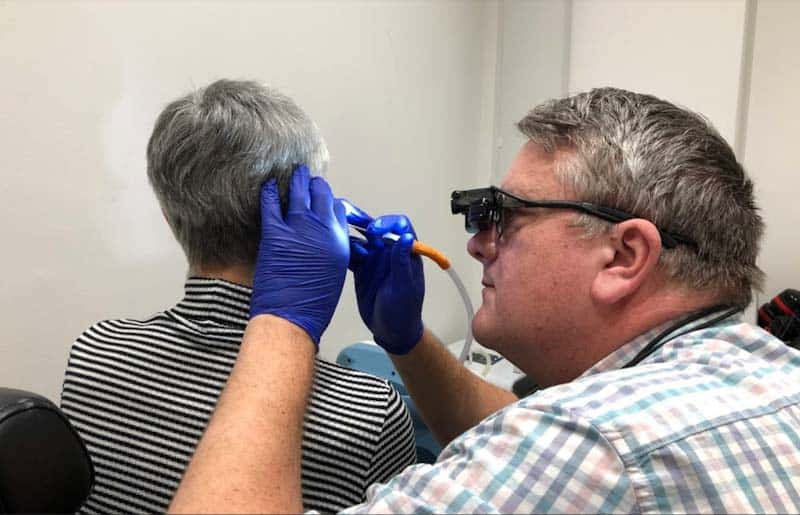
Here’s what ear wax removal looks like post-Covid-19:
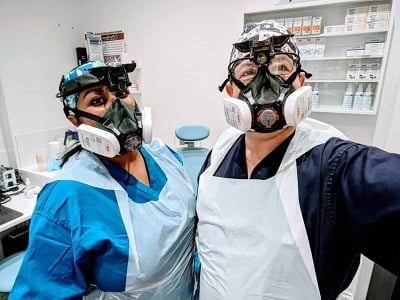
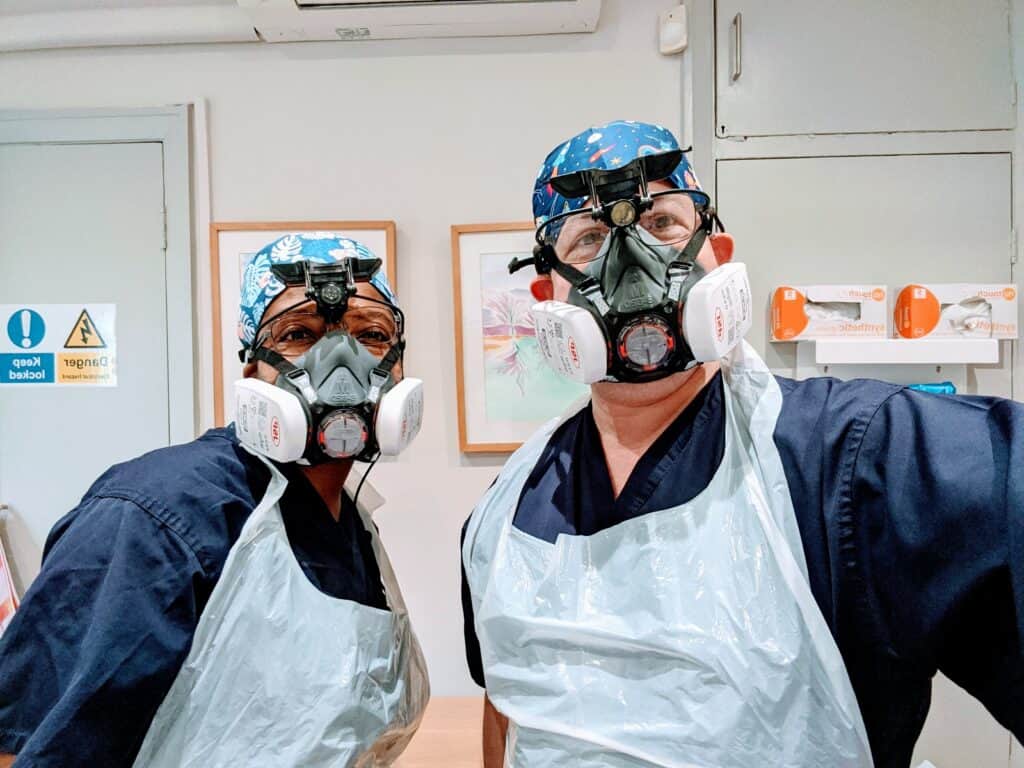
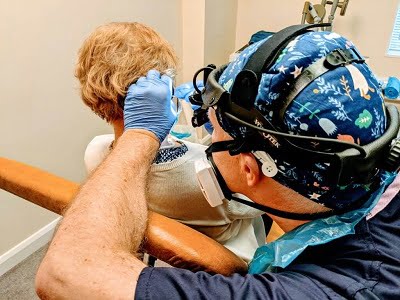
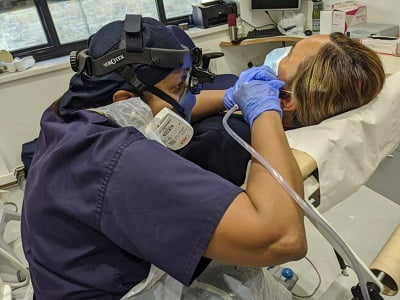
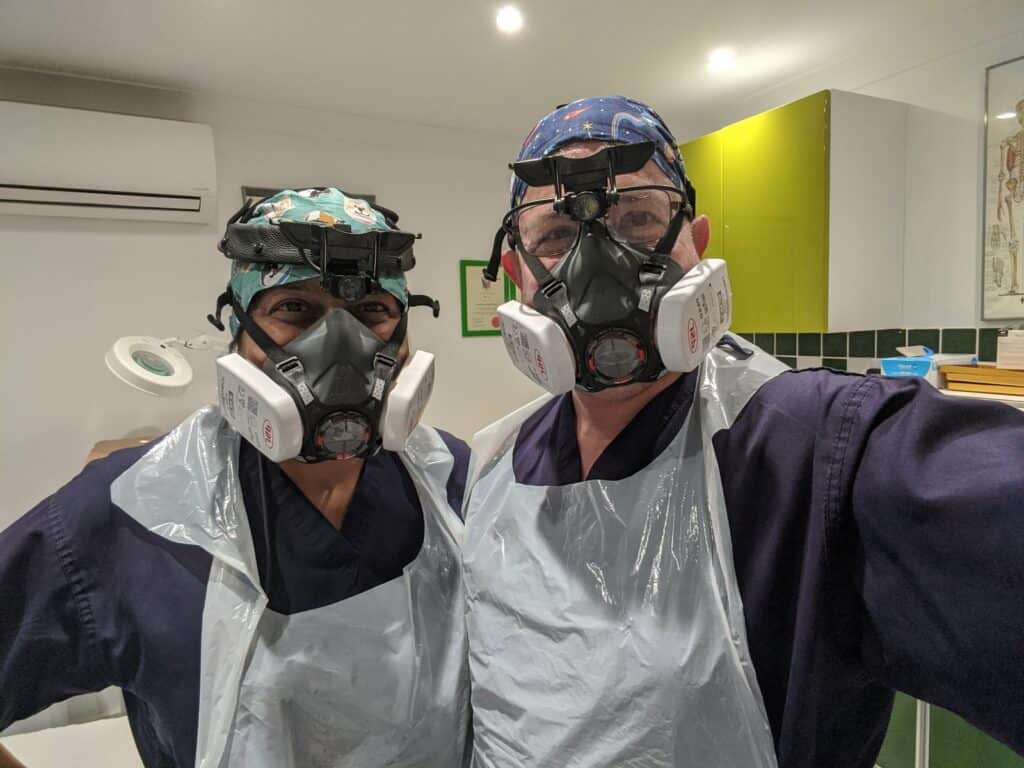
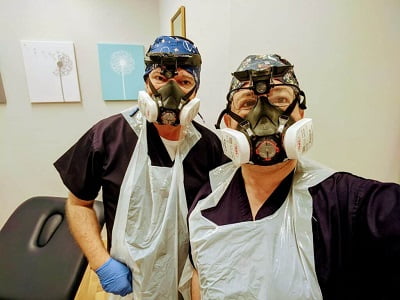
Ready to book? Enter your location at the top of the page and click “Find Appointments”
We look forward to helping you. We might look scary in our PPE, but we’re very friendly!
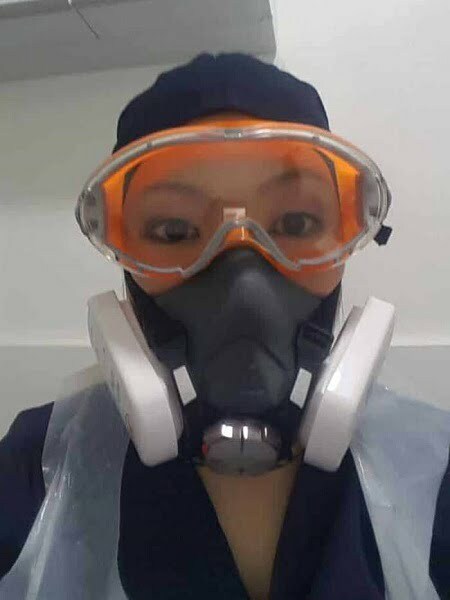
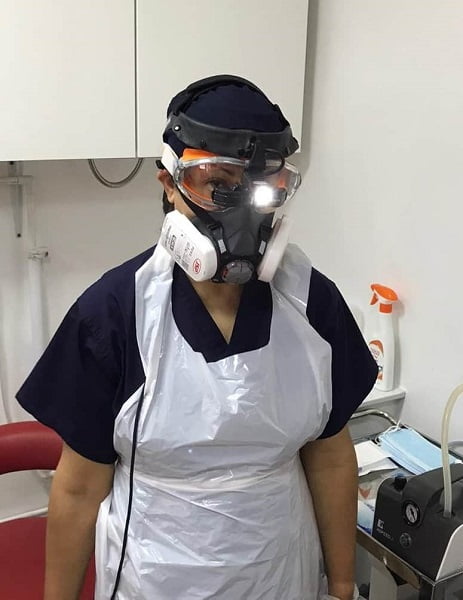
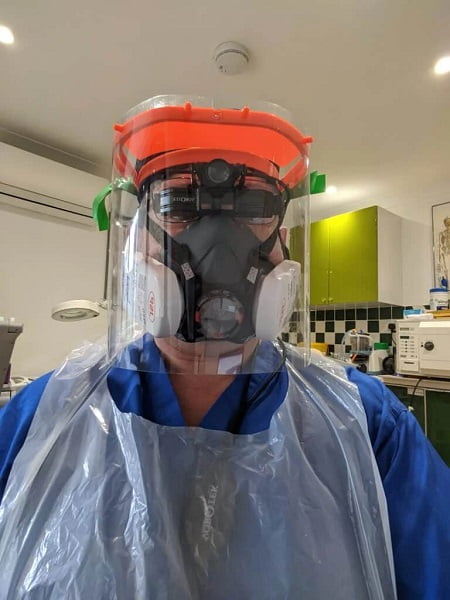
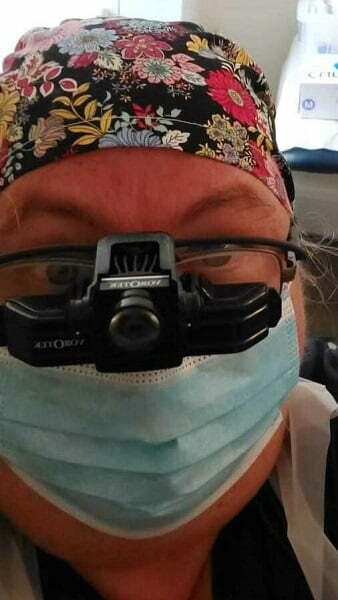
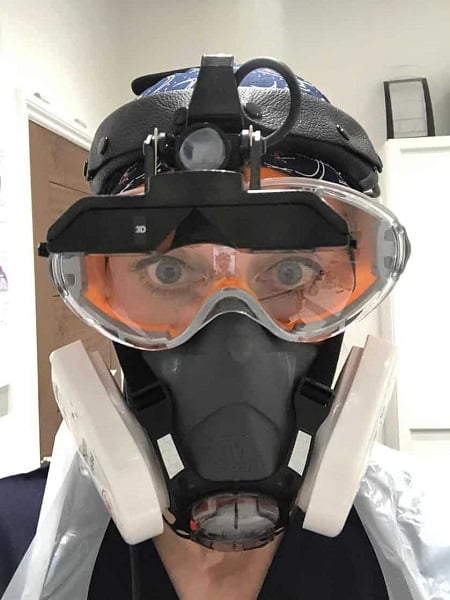
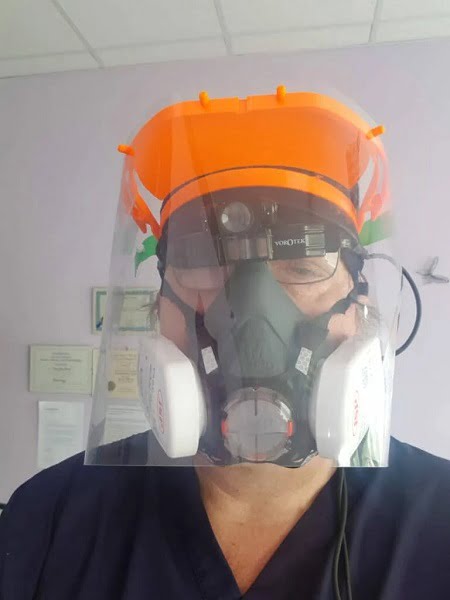
WE HAVE ENDEAVOURED TO KEEP OUR PRICES LOW, WHILST IMPLEMENTING GOLD STANDARD COVID-SECURE MEASURES. PRICES DISPLAYED IN OUR BOOKING SYSTEM ARE AUTOMATICALLY CALCULATED AND INCLUDE ALL APPLICABLE DISCOUNTS.
| One or Both | Online Price (including £10 self-service discount) |
|---|---|
| One ear (or wax too impacted / no wax)** | From £44, or Hear Now, Pay Later* from around £8/week |
| Both ears (or wax too impacted / no wax)** | From £59, or Hear Now, Pay Later* from around £10.50/week |
| Upgrade from one to both ears in clinic | £25 (Subject to wax being pre-softened and sufficient time available - at the discretion of our Audiologist) |
| *Hear Now, Pay Later | It can sometimes be difficult to budget for unexpected health costs. That's why we have teamed up with Laybuy to give the option of spreading our booking fee over 6 weeks. |
| **Consultation only (no wax present) | If no wax is present, we will provide ear care advice and/or a complementary hearing test (possibly at a later date), whichever our clinician deems appropriate |
| **Consultation only (wax too impacted) | If wax is too impacted, our clinician will remove as much as they consider is safe, and provide advice on an appropriate wax softening regime |
|
36 hours notice required for alterations and cancellations or NO refund will be given.
Non-attendance is charged at the full price.
Thank you. |
|
How Prices Are Calculated
| Price Adjustment | Adjustment Amount (+/-) |
|---|---|
| Online Self-Service Discount | - £10 |
| Advance Booking (8 - 14 days) | - £5 |
| Advance Booking (15 days or more) | - £10 |
| Off Peak (Normally before 12:00pm) | - £5 |
| Local Promotional Discount | Discount varies by location - See Booking System |
| Peak (5:00pm - 6:00pm) | + £10 |
| Peak (6:00pm onwards) | + £20 |
| Saturday | + £10 |
Ear Wax Removal Online Booking Form
Ready to book? Go to the top of the page and click “Find Appointments”
